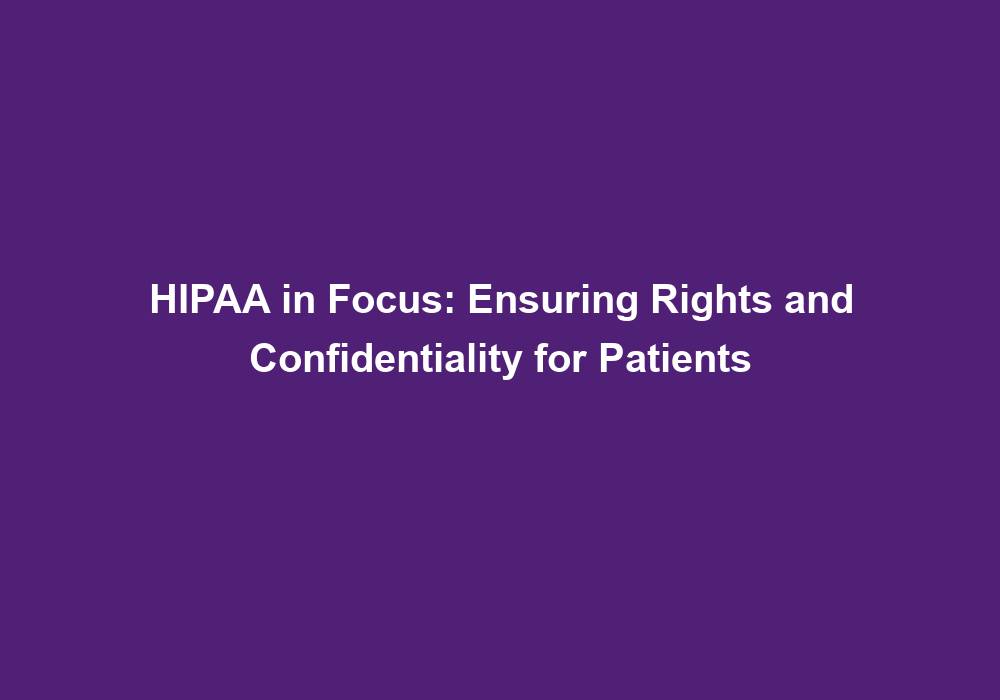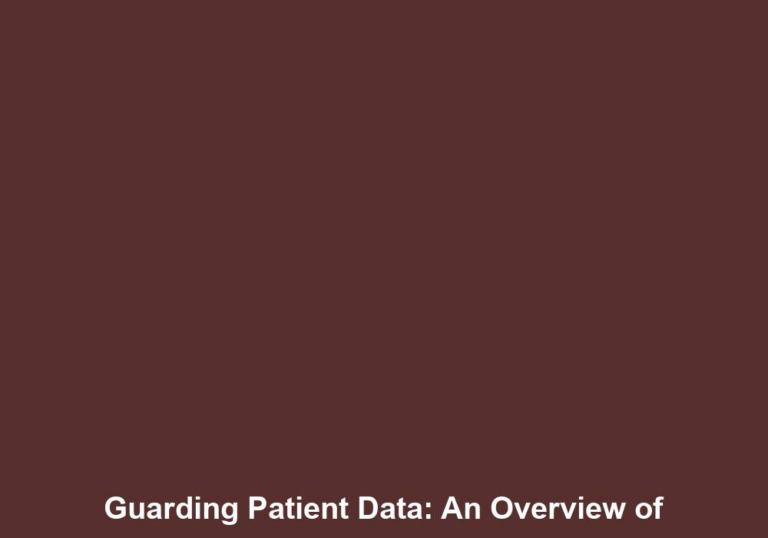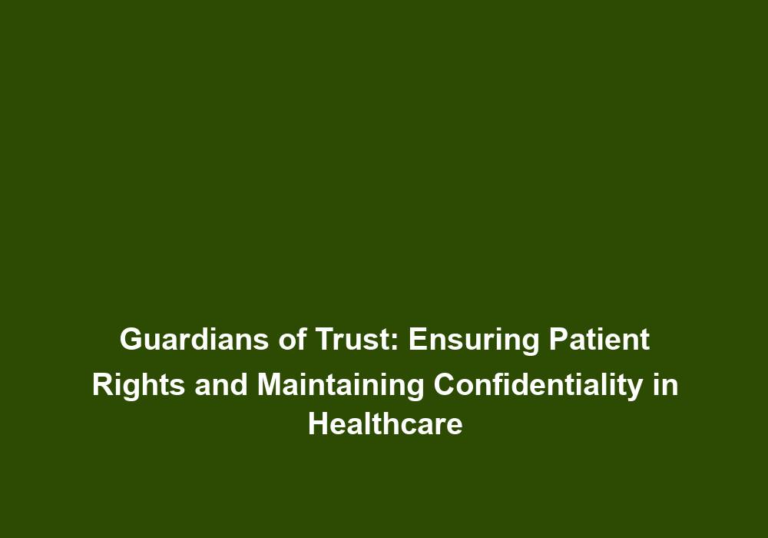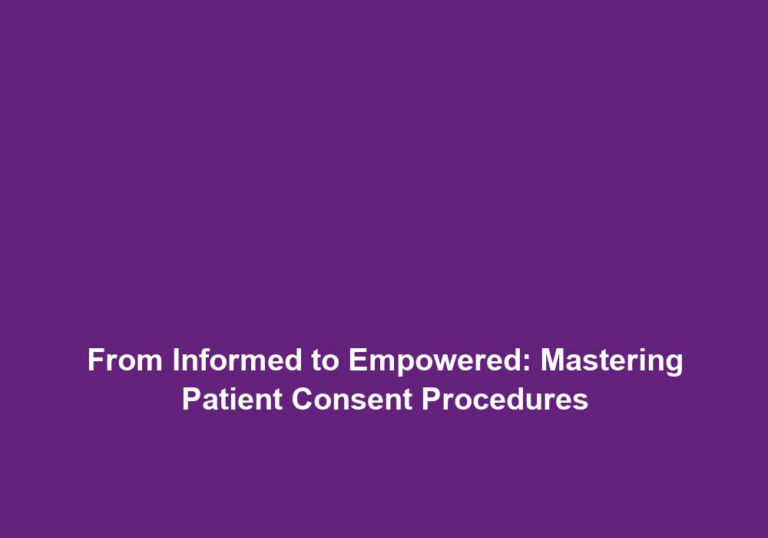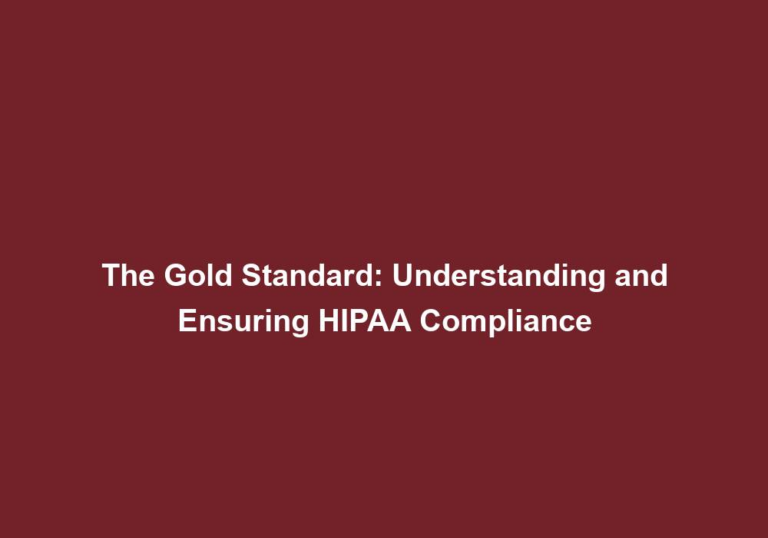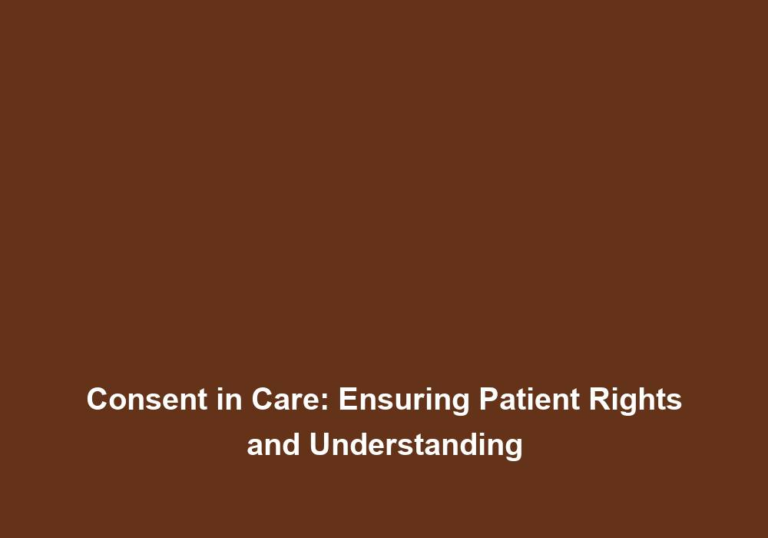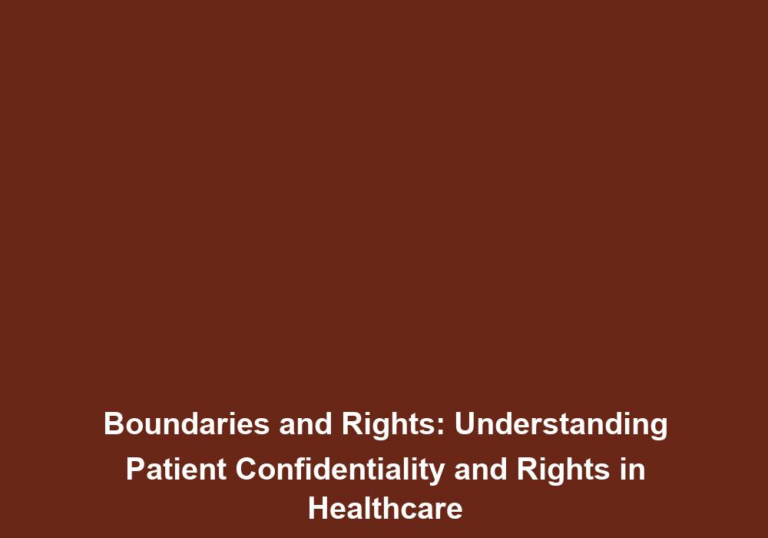HIPAA in Focus: Ensuring Rights and Confidentiality for Patients
The Health Insurance Portability and Accountability Act (HIPAA) plays a critical role in safeguarding the rights and confidentiality of patients’ healthcare information. As a cornerstone of healthcare privacy, HIPAA establishes guidelines and regulations that healthcare providers, insurers, and business associates must adhere to. In this article, we will delve into the key aspects of HIPAA, its significance, and the measures taken to protect patients’ rights and privacy.
Understanding HIPAA
HIPAA was enacted by the U.S. Congress in 1996 to address the growing concerns surrounding the privacy and security of individuals’ healthcare information. The primary objective of HIPAA is to ensure the confidentiality, integrity, and availability of patients’ data while granting them certain rights and control over their health information.
HIPAA is divided into several sections, each covering different aspects of privacy and security in healthcare. These sections include the Privacy Rule, Security Rule, Breach Notification Rule, and Enforcement Rule. Each rule serves a specific purpose in protecting patients’ rights and privacy.
The Privacy Rule, for instance, sets the standards for protecting patients’ individually identifiable health information, including electronic, oral, and written formats. It outlines the permissible uses and disclosures of protected health information (PHI) and provides patients with control over their health data. This rule ensures that healthcare providers and other entities handling patient data maintain strict confidentiality.
Importance of HIPAA in Healthcare
HIPAA brings several benefits to the healthcare industry, patients, and healthcare professionals. Let us explore why HIPAA is of utmost importance:
-
Protection of Patient Privacy: One of the primary goals of HIPAA is to protect patient privacy. HIPAA establishes strict guidelines that prevent unauthorized access to patients’ sensitive information. It ensures that healthcare providers and other entities handling patient data maintain strict confidentiality. This not only protects patients’ privacy but also helps prevent identity theft and fraud.
-
Patient Rights: HIPAA grants patients certain rights, including the right to access their medical records, request corrections, and receive notice of privacy practices. It empowers patients to have more control over their health information. By giving patients the ability to access their medical records, HIPAA promotes transparency and enables them to actively participate in their healthcare decisions.
-
Trust and Confidence: By safeguarding patient privacy, HIPAA instills trust and confidence in healthcare providers and the overall healthcare system. Patients are more likely to seek medical assistance knowing that their privacy rights are protected. This trust is crucial for building strong doctor-patient relationships and ensuring open communication between healthcare providers and patients.
-
Data Security: In today’s digital age, data security is of paramount importance. HIPAA requires healthcare entities to implement robust security measures to protect patients’ electronic health information from breaches, theft, or unauthorized disclosure. This includes implementing access controls, conducting regular risk assessments, and ensuring the integrity and confidentiality of electronic protected health information (ePHI). By prioritizing data security, HIPAA helps reduce the risk of cyber threats and promotes the safe exchange of patient information.
HIPAA Regulations and Compliance
To ensure the effective implementation of HIPAA requirements, covered entities and business associates must adhere to specific regulations and standards. Some of these include:
-
Privacy Rule: The HIPAA Privacy Rule establishes the standards for protecting patients’ individually identifiable health information, including electronic, oral, and written formats. It outlines the permissible uses and disclosures of protected health information (PHI) and provides patients with control over their health data. This rule ensures that healthcare providers handle patient data in a confidential and secure manner.
-
Security Rule: The HIPAA Security Rule sets the standards for safeguarding electronic PHI (ePHI) by implementing administrative, physical, and technical safeguards. Healthcare organizations are required to conduct regular risk assessments, implement access controls, and ensure the integrity and confidentiality of ePHI. This rule aims to protect patient data from unauthorized access, breaches, and cyber threats.
-
Breach Notification Rule: Under the HIPAA Breach Notification Rule, covered entities must notify affected individuals, the U.S. Department of Health and Human Services (HHS), and sometimes the media, in the event of a breach of unsecured PHI. This ensures transparency and enables individuals to take necessary actions to protect themselves. The rule also encourages covered entities to implement measures to prevent breaches and mitigate the potential harm caused by them.
-
Enforcement Rule: The HIPAA Enforcement Rule establishes procedures for investigating and imposing penalties for violations of HIPAA regulations. It empowers the HHS Office for Civil Rights (OCR) to enforce compliance through audits, investigations, and fines. This rule ensures that covered entities and business associates understand the consequences of non-compliance and encourages them to prioritize patient privacy and data security.
Safeguarding Patient Rights and Confidentiality
To ensure patients’ rights and confidentiality are protected, healthcare organizations must implement various practices and measures. Here are some key strategies:
-
Access Controls: Healthcare providers should implement access controls to restrict access to patient information only to authorized individuals. This includes strong passwords, user authentication, and role-based access controls. By limiting access to patient data, healthcare organizations can minimize the risk of unauthorized disclosure or breaches.
-
Staff Training and Awareness: Regular training sessions should be conducted to educate healthcare professionals about HIPAA regulations, privacy practices, and data security best practices. This ensures that employees are aware of their responsibilities and the importance of protecting patient information. Training should cover topics such as handling patient data securely, recognizing potential security threats, and reporting any breaches or incidents promptly.
-
Secure Communication: Healthcare entities must adopt secure communication channels, such as encrypted emails or secure messaging platforms, to transmit sensitive patient information securely. This prevents unauthorized interception of the data during transmission. Additionally, healthcare professionals should be encouraged to avoid discussing patient information in public areas or over unsecured networks.
-
Physical Security Measures: Physical security measures, such as restricted access to healthcare facilities, locked filing cabinets, and surveillance systems, help protect physical records and prevent unauthorized access. Healthcare organizations should establish protocols for the secure storage and disposal of physical records to ensure the confidentiality of patient information.
-
Business Associate Agreements: Healthcare organizations should enter into written agreements with their business associates, such as third-party vendors or contractors, to ensure they also comply with HIPAA regulations and maintain the confidentiality of patient information. These agreements should outline the responsibilities and obligations of each party regarding the protection of patient data.
Conclusion
HIPAA’s focus on ensuring patients’ rights and confidentiality is paramount in today’s healthcare landscape. By implementing the regulations and standards set by HIPAA, healthcare organizations can protect patient privacy, enhance data security, and establish trust in the healthcare system. Adhering to these guidelines not only safeguards patients’ sensitive information but also contributes to improved healthcare outcomes and patient satisfaction.
Note: This article is for informational purposes only and should not be considered legal advice. Healthcare organizations should consult legal professionals for guidance on HIPAA compliance.

